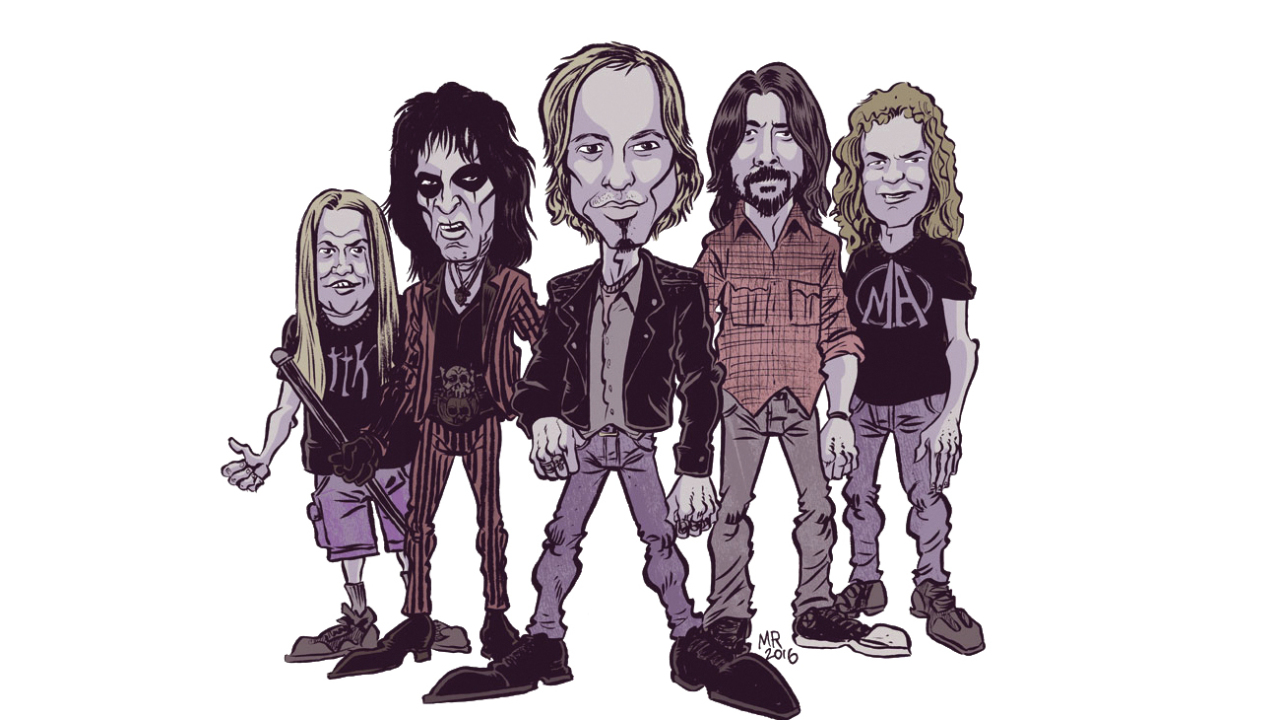Everybody needs a hobby. A musician’s hobby is his band, most of the time. If you work hard you can turn your hobby into your profession. But after a while you realise: now that you have found a new job in your former hobby, you need a new hobby! Jesus, it‘s a vicious circle that gave birth to a new species loved by progressive music nerds, and one not given a shit about by the reasonable rest of the world. May I introduce you to the by-product of the self-fulfillment of ageing songwriters trying to break out of their routine, bass players who feel suppressed by band leaders and drummers that simply want to release the 32 songs they have amassed over the last couple of decades; songs that the band’s respective producers simply didn‘t consider appropriate for the main band’s albums - ladies and gentleman: The Supergroup!
I am the first to admit that there is a germ of fact in almost every prejudice, and especially in our early days those kinds of prejudice towards “projects“ were what we had to deal with every time my label submissively knocked at the door of music magazine editors to get features on Avantasia. Actually, to begin with, I had problems finding people that would knock at those doors on my behalf. Not even record labels saw any potential in the beginning. Admittedly it was hard to predict whether there would be a realistic chance of success or not. My friend Arjen Lucassen and his Ayreon project had just made quite a splash in the progressive music world. Damn Yankees were some kind of a supergroup, but they had a hit and were considered a normal band. I remember a project called Phenomena which I thought had some amazing songwriting, but these kinds of projects were mostly seen as something that cost a fortune; a sure shot for the label to pour a lot of money down the drain. There weren’t any so called ‘Metal Opera’ projects that involved ten singers that had made a real impact in the music industry. As soon as you told someone you were going to do a rock opera everyone‘s Spinal-Tap-dungeons-and-dragons-and-a-lot-of-vibrato alert went on! And I don‘t really blame anyone.
What people often didn‘t take into consideration - and some still don’t – is that as a general rule what is true of a proper band is true of a so-called supergroup as well. Some are shit and some are not! Some are serious and some are not. Some are meant to last and have been put together for the right reasons and some have just been put together by a record company. It’s up to the listener to fire up the bullshit detector!
I‘ve always approached it like that - if you do things for the right reason you might be successful. In the music world, success is a requirement to be allowed and able to afford to do it again. I must say that what I have experienced in my Avantasia universe - by doing it again and again and seeing this juggernaut becoming a touring living entity and having worked with people like Alice Cooper, Dee Snider and Rudolf and Klaus of the Scorpions - is beyond phenomenal! I am speaking as a fan, but also as an apprentice. If you don‘t have blinkers on, working with your idols and fellows in other bands can be so much fun, and it‘s going to make you a better musician. If you sing like a hoarse frog, and you dare to go on stage next to Jorn Lande, Michael Kiske and Bob Catley, and you get away with it… Holy cow! You‘ve definitely accomplished something.
I think there‘s a lot of prejudice towards so called all-star-groups, and sometimes I understand that. Sure, nothing beats AC/DC or Maiden: bands who became icons because they started out as five guys and wrote music history as unique bands in their own right. But just like solo excursions by hyperactive vocalists, a group of five highly talented egomaniacs teaming up for just an album or a stage extravaganza (like the Hollywood Vampires for example) are an entertaining addition to our scene, even if only for sheer sensation. If it sounds and looks great, probably it /is/ great! Ultimately, fans are smart enough to distinguish between real and fake.
